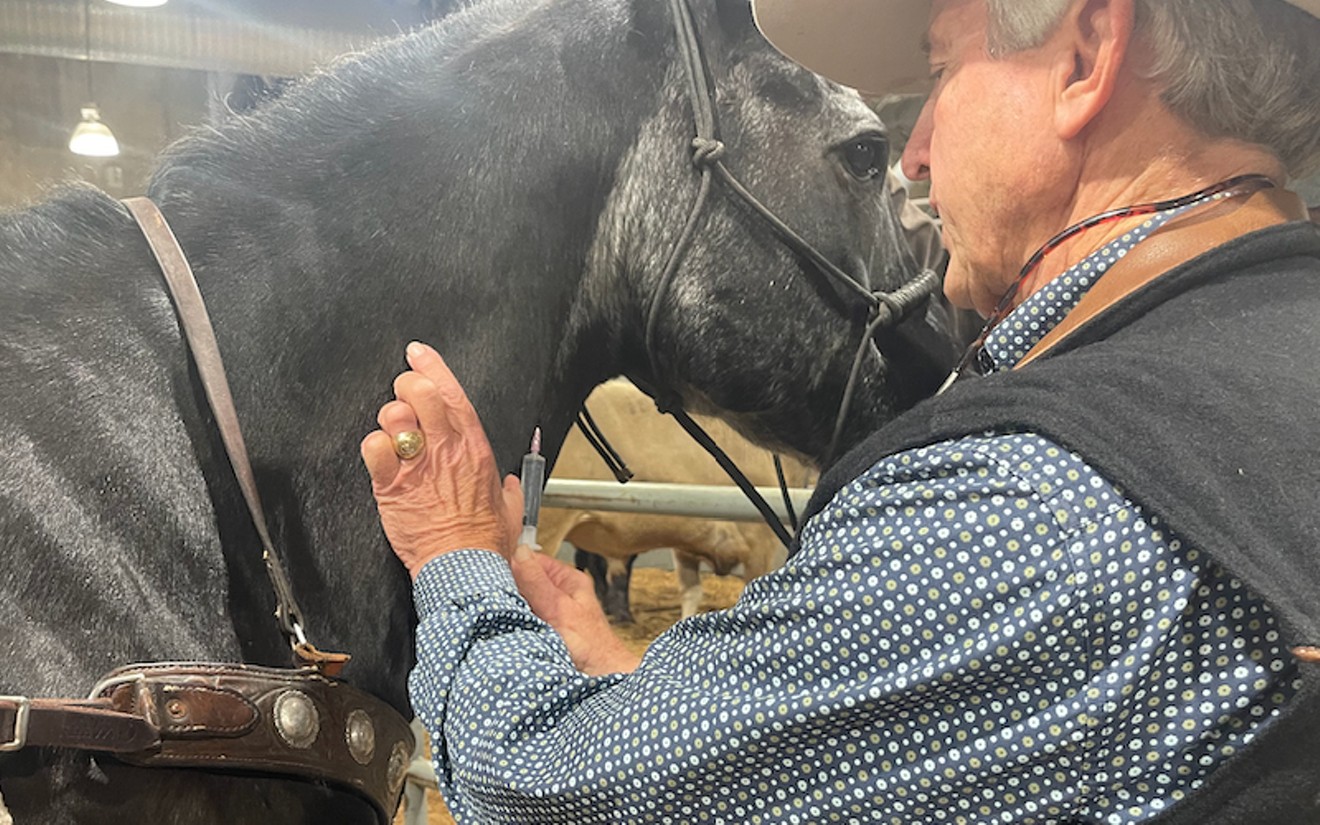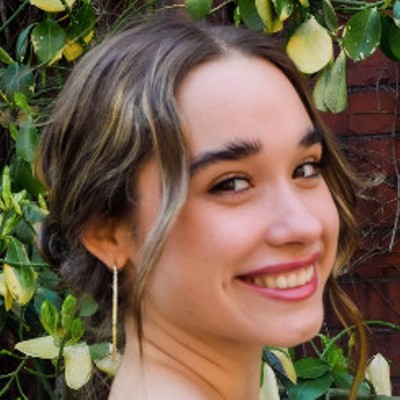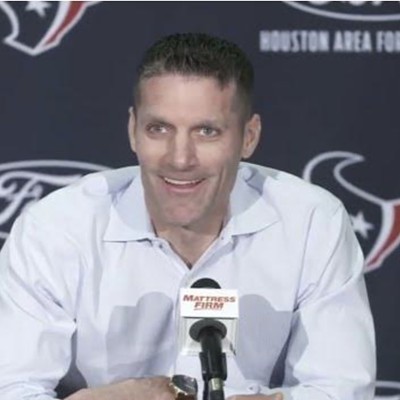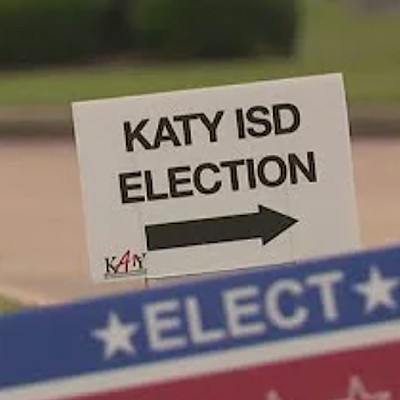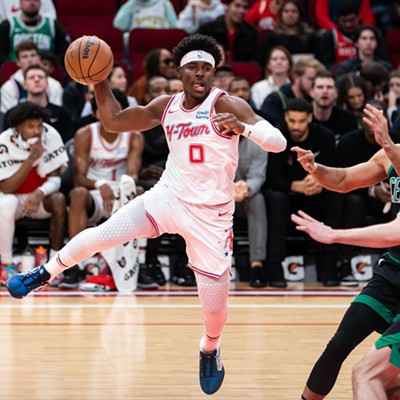That was until Knape’s best friend, who was in the Texas A&M Corps of Cadets with him, suggested they attend the university’s veterinary school. It didn’t take much convincing. Knape agreed and applied.
“I said, ‘Let’s do that. We’ll do it together.’ I got into vet school, and he didn’t,” Knape started to laugh. "We’re still best friends today."
Knape has worked as a large animal veterinarian for 47 years. In 1983, he opened his own practice, Gulf Coast Large Animal Clinic, with the help of his wife Cheryl—who is the practice manager—and veterinary technician “extraordinaire” Gary Batson on his family’s farm.
Several years after, Knape started working as a veterinary show official, where he was hired alongside six other veterinarians to institute the Residue Avoidance Program, created to make sure the competition is fair for rodeo athletes and the food supply is drug-free.
Knape said Houston served at the forefront of this program as the team of veterinarians developed it, went through the process of legalizing it and implemented it at RodeoHouston. Since the late 1980s, it has grown to become a committee of 50 veterinarians who test hundreds of animals each year.
In 2000, Knape became the official RodeoHouston veterinarian after rodeo officials asked him if he would serve in this role, as the organization wanted to have its large animal veterinarian.
“This is just like a regular practice. This is just a continuation of my practice in Alvin,” Knape said. “This is just a ranch within the city.”
Knape cares for hundreds of bucking horses, bulls, steers and horses. He arrives from his practice, which is about 30 miles away, after completing a full workday there.
Easily identifiable among the crowds of competitors, staff and volunteers backstage at the NRG Stadium by his stethoscope, leather-bound medical supply bag, Knape is known for his quick wit and sense of humor.
He stops to strike up conversations and trade jokes with nearly everyone who crosses his path, whether he knows them or not.

Dr. Gregg Knape speaks with many of the volunteers and contestants, asking them how the animals they are riding on that night are doing.
Photo by Faith Bugenhagen
According to Knape, there are few serious injuries to the animal athletes in competition, “You have to remember with RodeoHouston, these are the top echelon of animals. These animal athletes are the best in rodeo.”
“These animals are worth more than your average car — much more than that even — they [their owners] take such immaculate care of them,” he added. “They just love their animals. They live with them almost 24/7.”
Knape said he monitors these animals primarily for runny noses, bumps, bruises, cuts from kicking their stalls or one another and any diseases. Other than these routine health concerns, he said, they are usually healthy, a testament to the care they receive during the off-season.
Before a show this week, Knape gave several Grand Entry horses antihistamines—allergy medications—because dirt, dust and oak pollen were affecting their respiratory systems. He said allergens can affect horses as much as they do humans.
Knape administered the injections after greeting the horses and rubbing their necks. He added most used for this part of the rodeo programming are from Colorado and not used to “all this mess” in Houston.
“The thing about horses is just don’t surprise them. They know you’re coming up to them and doing something when you rub their neck a little,” Knape said. “He [the horse] knows it’s probably going to be shot or a blood sample. You can read a horse, and a horse can read you pretty fast.”
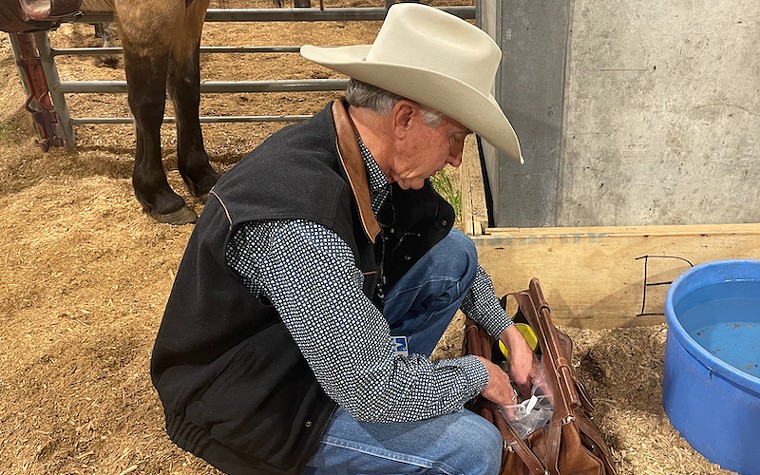
Dr. Gregg Knape has served as RodeoHouston's official veterinarian for 25 years.
Photo by Faith Bugenhagen
During the competition, Knape’s work is far from over. He is stationed near the stage in what he calls the “best seat in the house” — although this is up for debate according to one of his seat-mates, Jim Thorp — ready to go if needed.
Knape has a calm presence but is decisive in his work. At a recent show, he asked an event rider how her horse, who was receiving antibiotics for an earache, was doing.
When she said it wouldn’t hurt to give the horse another round, he interjected, “No, we need to.”
Knape said it’s rare, but fractures of animals’ bones would be on the more severe side of injuries seen. If this occurred to a calf — baby cow or bull — he would likely take it to his practice to get it x-rayed and into a cast.
However, he added that adult animals, such as horses, are normally insured because of their value. They are referred to a nearby university with a veterinary care team or a specialist for treatment.
Alongside having Knape down at the stadium, RodeoHouston invites two investigators with the Houston Society for the Prevention of Cruelty to Animals to attend every night to observe the show in case an incident of animal cruelty is reported.
Knape’s favorite kinds of animals to take care of at RodeoHouston — similar to when he was working on the farm with his father — are the babies. He said the bucking bulls make his job slightly more difficult.
“It’s like everything else. They [the babies] all grow up like kids. They start cute, energetic and innocent,” Knape said. "They’re a lot of fun, and you can watch them grow up and develop just like people do. It’s the neatest thing.”
“With the bulls, you can go back there and walk around and do things,” he added. "As long as you just leave them alone, they’re happy. They get along. But you would be a little extra cautious when you’re working around those.”
Knape remembers the first year he served as an official veterinarian 25 years ago. RodeoHouston was two nights into its season, and there was a roping calf injury during the competition.
“I go through the gate, and I run all the way down there [across the NRG stadium stage] as fast as I can because I’m saying to myself, ‘Oh my god, they need me, you know?’ Knape said. “About the time I get to the end—I go through all the dirt—I am out of breath. It's a long way down there!”
“That stupid truck right there [he pointed to a truck] pulls up beside me as I get there. So now, I get in the truck, and we go together,” he laughs. “I’m a quick learner. After I did that the first time, I tell the guy who drives it to never leave that gate without me. Because I’m not running again.”

